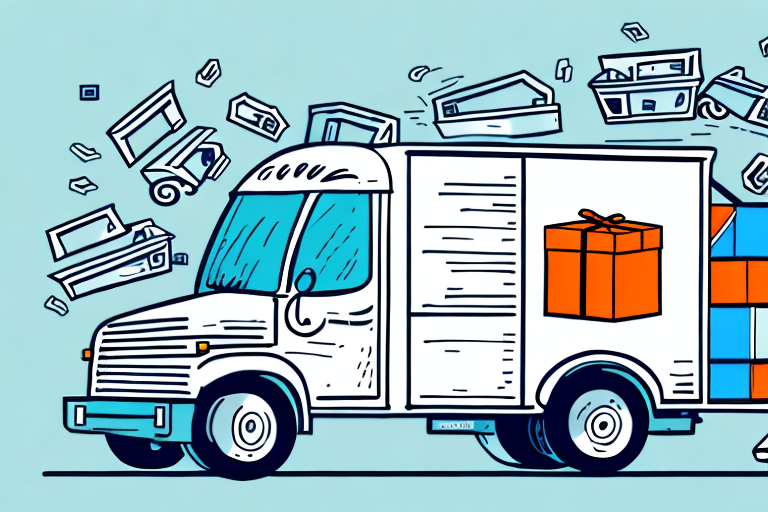What is a Courier Contract Job?
A courier contract job involves delivering packages and documents on behalf of companies or clients as a self-employed individual. Unlike traditional employment, couriers operate as independent contractors, giving them the freedom to choose their own schedules and workload. Typically, couriers use their personal vehicles, whether it be a car, bike, or scooter, to make deliveries throughout the day.
This role requires adaptability, as couriers may work for multiple clients or a single company, depending on their preferences. Key responsibilities include ensuring timely deliveries, maintaining accurate records, and providing excellent customer service.
The Benefits and Challenges of Courier Contract Jobs
Benefits of Being a Courier
One of the primary advantages of a courier contract job is the flexibility it offers. Couriers can set their own hours, making it ideal for individuals needing to balance work with other commitments such as education or family. Additionally, the potential to earn extra income or transition into full-time self-employment is a significant draw.
Another benefit is the opportunity to explore new areas and meet diverse people, which can enhance networking opportunities and personal growth. According to a Statista report, the courier industry in the US has seen consistent growth, underpinned by the rise in e-commerce.
Challenges Faced by Couriers
Despite its benefits, being a courier can be physically demanding. Couriers often lift heavy packages and spend extended periods on the road, which can lead to fatigue and strain. Ensuring regular breaks and maintaining physical health are crucial.
Additionally, couriers may encounter unpredictable schedules and the potential for accidents. Navigating traffic, adhering to delivery deadlines, and handling unexpected delays require strong time-management and problem-solving skills.
Choosing the Right Courier Contract Job
Key Factors to Consider
When selecting a courier contract job, it's essential to evaluate factors such as pay rates, flexibility, and the nature of deliveries. Ensuring that the compensation aligns with your financial goals and that the job's demands fit your lifestyle is vital for long-term satisfaction.
The type of items you'll be delivering also matters. Some roles may involve handling fragile or high-value packages, necessitating additional training or specialized equipment to ensure safe delivery.
Top Companies Hiring Couriers
Several reputable companies are actively hiring courier contractors, including:
Each of these companies offers unique benefits, such as competitive pay rates, flexible schedules, and opportunities for growth within their platforms.
Preparing for a Successful Courier Contract Job
Interview Preparation
Preparing for a courier contract job interview involves understanding the company's expectations and requirements. Demonstrating strong communication skills, reliability, and a positive attitude can set you apart from other candidates. Researching the company's services and understanding their delivery processes can also be beneficial.
Essential Skills
Successful couriers possess key skills such as:
- Time Management: Efficiently planning routes and managing schedules.
- Communication: Interacting effectively with customers and clients.
- Problem-Solving: Addressing and resolving delivery issues promptly.
- Attention to Detail: Ensuring accurate deliveries and handling of packages.
Common Mistakes to Avoid
New couriers should avoid common pitfalls such as:
- Overestimating their capacity, leading to missed deadlines.
- Neglecting vehicle maintenance, which can cause delays and safety issues.
- Failing to communicate effectively with clients or customers.
- Ignoring safety protocols, increasing the risk of accidents.
Excelling and Building a Career as a Courier
Tips for Excelling
To thrive in a courier contract role, consider the following tips:
- Prioritize Customer Service: Ensure timely and courteous interactions.
- Stay Organized: Keep track of deliveries and manage your schedule efficiently.
- Continuous Learning: Stay updated with industry trends and improve your skills.
- Networking: Connect with other couriers and industry professionals for support and opportunities.
Building a Successful Career
Developing a career as a courier involves accumulating experience, expanding your client base, and possibly diversifying the types of deliveries you handle. Consistently delivering excellent service can lead to repeat business and positive referrals, enhancing your reputation in the industry.
Additionally, exploring opportunities for advancement, such as managing a team of couriers or transitioning to logistics management, can further your career growth.
Understanding Pay, Benefits, and Future Trends in Courier Work
Pay and Benefits
Courier pay rates vary based on factors like location, company, and experience. According to the U.S. Bureau of Labor Statistics, the median annual wage for couriers and messengers was approximately $36,720 in 2022. Benefits often include flexible hours, the ability to earn tips, and potential bonuses for high performance.
Freelance vs. Full-Time
Choosing between freelance and full-time courier roles depends on your personal preferences and career goals. Freelance positions offer greater flexibility and control over your schedule, making them suitable for those seeking autonomy. Full-time roles, on the other hand, may provide more stable income and additional benefits such as health insurance.
Future Trends and Opportunities
The courier industry continues to evolve with the growth of e-commerce and the increasing demand for same-day delivery services. Innovations such as drone deliveries and automated logistics systems are emerging, presenting new opportunities and challenges for couriers. Sustainability is also becoming a focus, with a rise in eco-friendly delivery methods like electric vehicles and bicycle couriers.
Staying informed about these trends can help couriers adapt and leverage new technologies to enhance their services.
Staying Safe on the Road as a Courier
Safety is paramount for couriers, given the amount of time spent on the road. To ensure safety:
- Maintain Your Vehicle: Regular checks and maintenance can prevent breakdowns and accidents.
- Practice Defensive Driving: Stay alert, adhere to traffic laws, and anticipate the actions of others on the road.
- Use Safety Equipment: Utilize helmets for bike couriers and ensure all delivery gear is secure.
- Plan Routes: Familiarize yourself with the delivery area to avoid unexpected hazards and optimize travel time.
Additionally, understanding and complying with industry regulations and best practices can further enhance safety and efficiency on the job.
Common Mistakes to Avoid When Starting Your Career as a Courier
Starting a career as a courier can be challenging. To avoid common mistakes:
- Insufficient Research: Understand the demands of the job and the requirements of different companies before committing.
- Poor Time Management: Plan your deliveries efficiently to meet deadlines and avoid unnecessary stress.
- Neglecting Customer Service: Building positive relationships with clients can lead to repeat business and referrals.
- Overloading: Avoid taking on more deliveries than you can handle, which can compromise quality and safety.
By being proactive and mindful of these potential pitfalls, new couriers can establish a strong foundation for a successful career.




















